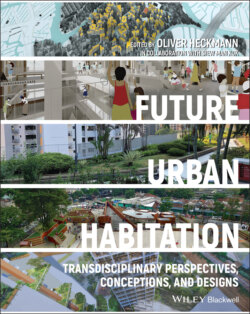Читать книгу Future Urban Habitation - Группа авторов - Страница 41
Personal Communities Based on the Principles of Diversity
ОглавлениеI've argued for the importance of common frames of reference, including shared values. But shared values alone will not build an inclusive society, if not buttressed by boundary spanning social relationships. On the one hand, in Singapore, the state plays a pivotal role in promulgating a sense of national identity, mobilizing the instruments of education, the media, culture and the like as part of a top‐down process (Gellner 1983). The cultural intelligentsia also play a role: cultural elites interpret the nation (including its history) and re‐present it to the people, whether in theatrical productions, documentaries, or popular culture (including comics) (Hutchinson 1992). On the other hand, social relationships represent a critical foundation of nationhood. National identities, like other forms of identity, are ‘socially constructed through interaction among agents’ (Hopf 2016, p. 4). The human relations aspects of nation building must be recognized and affirmed.
In my study of Singapore mentioned earlier, I found bridging social capital correlated significantly with national identity and with the trust of other groups (Chua et al. 2017). I concluded that those with ties to people from different parts of the social structure show an increased sensitivity to other cultures and milieus and an ability to understand different perspectives. This brings them to think in national terms, not just in terms of their own groups.
The study considered several forms of bridging social capital, including ties between people of different races/ethnicities, religions, and classes, but the strongest links to national identity turned out to be those centred on class diversity. More specifically, the ties between elites and non‐elites were the most significantly related to national identity. This underscores my point that bridging elite and non‐elite circles and disrupting the social closures that separate them have a substantial payoff.
Class divisions have grown in many cities around the world, not just in Singapore. The future city needs to face that reality and emerge stronger for it. Arguably, the human instinct is to form class silos and fence off others, i.e. ‘homophily’ or the like‐of‐the‐same (McPherson et al. 2001). But intentional efforts to bridge the divide by encouraging intergroup contact and relationships will pay off in a heightened sense of inclusivity, including a deepened sense of belongingness to the nation connecting all groups.
